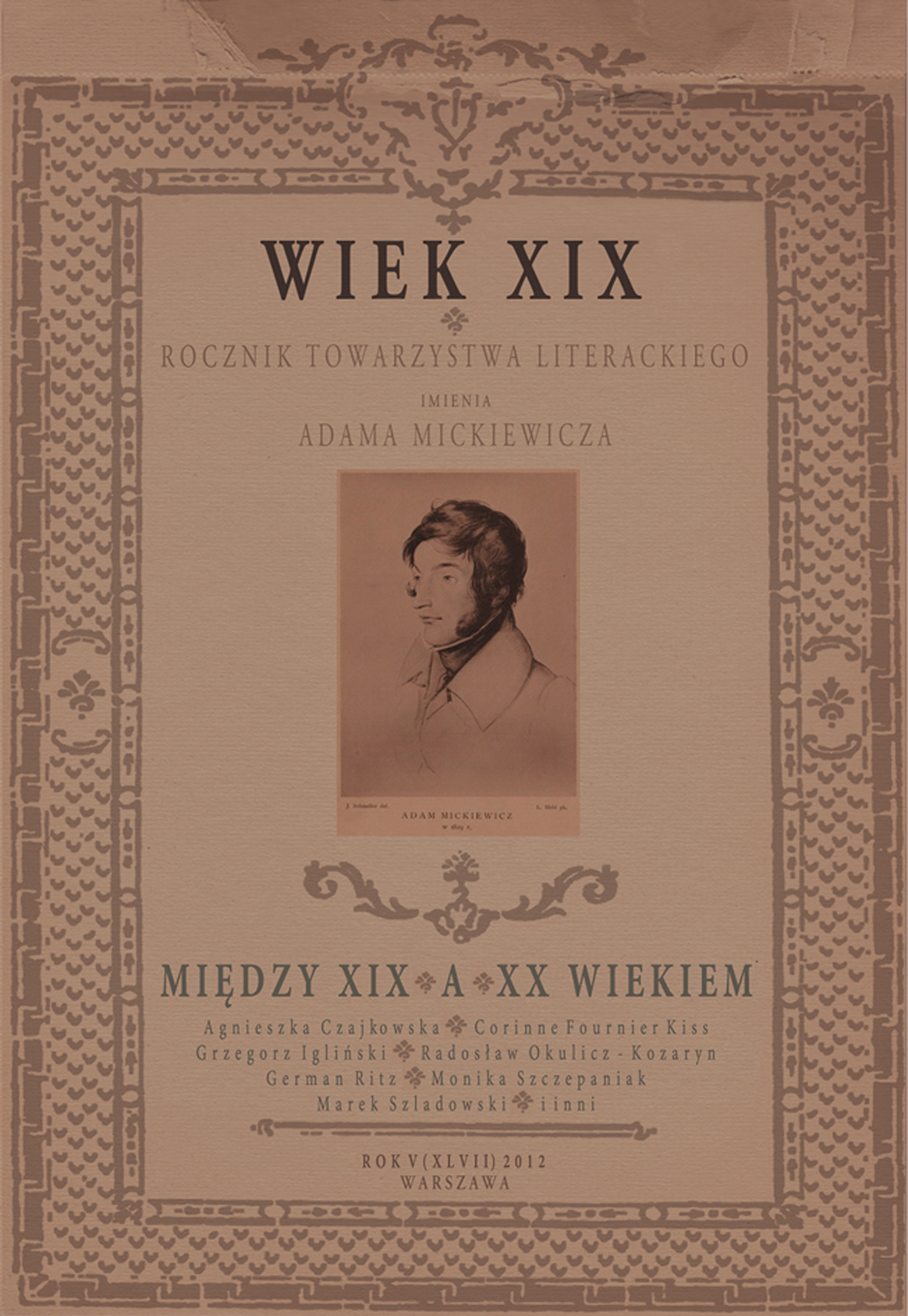Eugène Véron – zapomniane ogniwo polskiego modernizmu
Eugène Véron – a Forgotten Link of Polish Modernism
Author(s): Iwona Maria MalecSubject(s): Philosophy, History of Philosophy, 19th Century Philosophy
Published by: Towarzystwo Literackie im. Adama Mickiewicza
Keywords: Eugène Véron; aesthetics; beauty; art; expression; positivism; metaphysics; avant-garde; scientific art theory
Summary/Abstract: In the second half of 19th century, when Poland was suffering from lack of independence, the development of arts was particularly subjected to patriotic ideas. In spite of all the restrictions imposed by the partitioners, the cultural life flourished. During those days the leading Polish critics — inspired by the aesthetical thoughts of Eugène Véron – popularized new trends in arts that were coming to Poland from the Western Europe and thus created the artistic opposition against conservatism in Polish art. Bolesław Prus, Antoni Sygietyński and Stanisław Witkiewicz belonged to this group of critics, advocates of modern art. Nowadays, the theory of this French aesthetician constitutes a forgotten chapter of European aesthetics, one that is worth reminding and describing to a contemporary reader. Eugène Véron belonged to the leading French aestheticians and philosophers of the second half of 19th century, among other thinkers of that time, such as: Auguste Comte, Hippolyte Taine, Jean-Marie Guyau and Gabriel Séailles.
Journal: Wiek XIX. Rocznik Towarzystwa Literackiego im. Adama Mickiewicza
- Issue Year: XLVII/2012
- Issue No: 1
- Page Range: 141-151
- Page Count: 11
- Language: Polish

